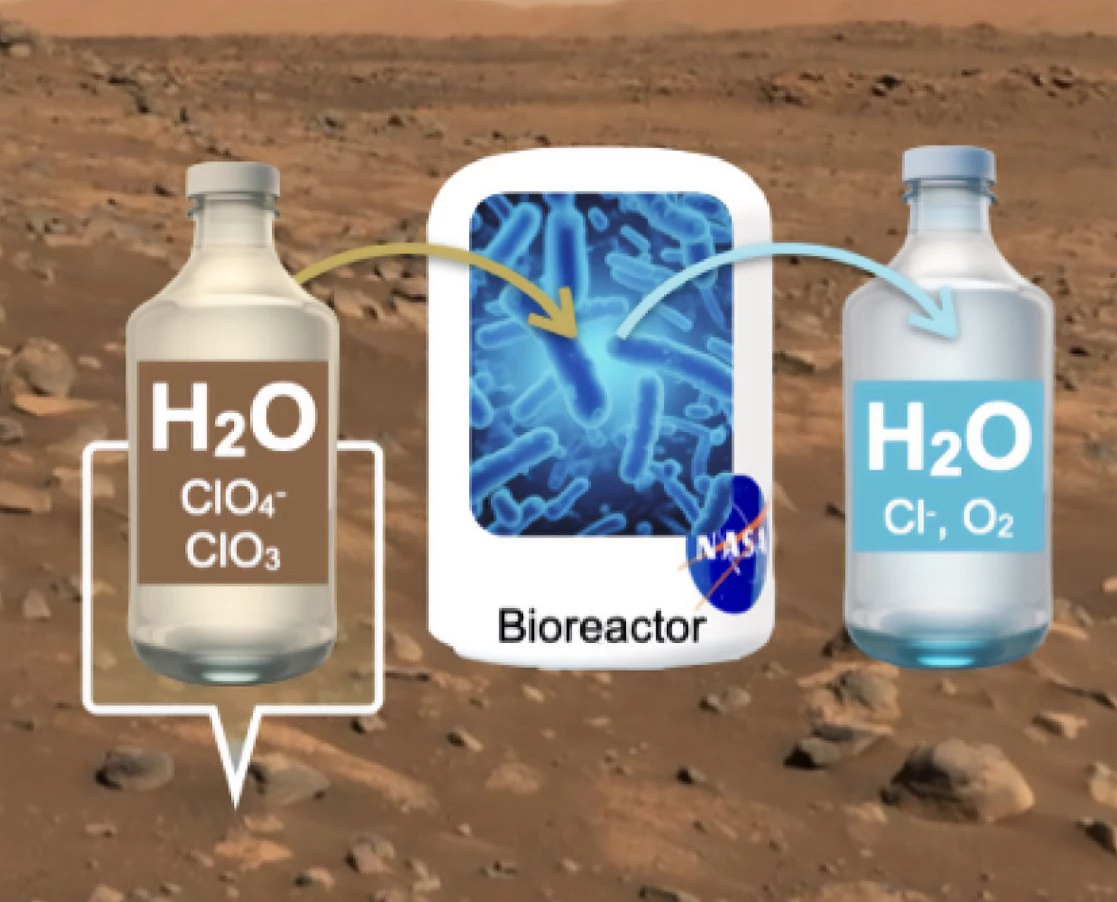To address the prospect of parched astronauts on Mars, NASA is considering a new proposal. The agency may develop a method of using synthetic biology to remove toxic perchlorates from Martian ice deposits, thus making water from those deposits suitable for drinking by humans.
If you've read enough adventure fiction set in deserts, sooner or later you'll run across the hackneyed plot point where our hero comes across a water hole only to find it's full of poisonous minerals. A similar situation will face future astronauts on Mars. However, it will be a common problem, not a rare one.
The culprit is a class of compounds called perchlorates. These are molecules that contain the ion CLO₄. They're not that common on Earth because our planet's extremely volatile environment, abundant with water and oxygen, tends to destroy them. On Mars, it's a different picture. The lack of oxygen and water – combined with the relentless bombardment of the surface with hard ultraviolet and cosmic rays over hundreds of millions of years – has permeated the soil with perchlorates, which have also seeped into the subsurface ice deposits.

This situation has already caused NASA and other space agencies a lot of grief. Perchlorates are highly corrosive, and their volatile nature is such that they produced the infamous false positive result in NASA's Viking lander experiment to detect life. At first, the sudden jump in released gasses was thought to be the result of Martian microbes. Instead, it was just the chemical reaction of the watery nutrient solution coming into contact with the perchlorates in the soil sample.
For astronauts, perchlorates are simply bad news. They make any water from Martian ice undrinkable and unsuitable for growing crops, or even for making rocket propellants. It's possible to remove perchlorates using reverse osmosis membranes or anion exchange, but most methods tend to require an impractical amount of equipment, energy and water for pretreatment.
The new method proposed to NASA is to use what is called a regenerative perchlorate reduction system. This approach uses synthetic biology to create genetically engineered bacteria that are capable of feeding on the perchlorates and converting them to oxygen and chloride.
Bacteria capable of doing this aren't new. They occur naturally on Earth but aren't suitable for sending to Mars, so the research team wants to take the key genes that catalyze the reaction and tuck them into Bacillus subtilis strain 168 – which is okayed for spaceflight - and control the reaction with an active promoter.
According to the team, such a method would not only be scalable, but it would directly eliminate the perchlorates rather than filtering them out for later disposal.
Source: NASA





